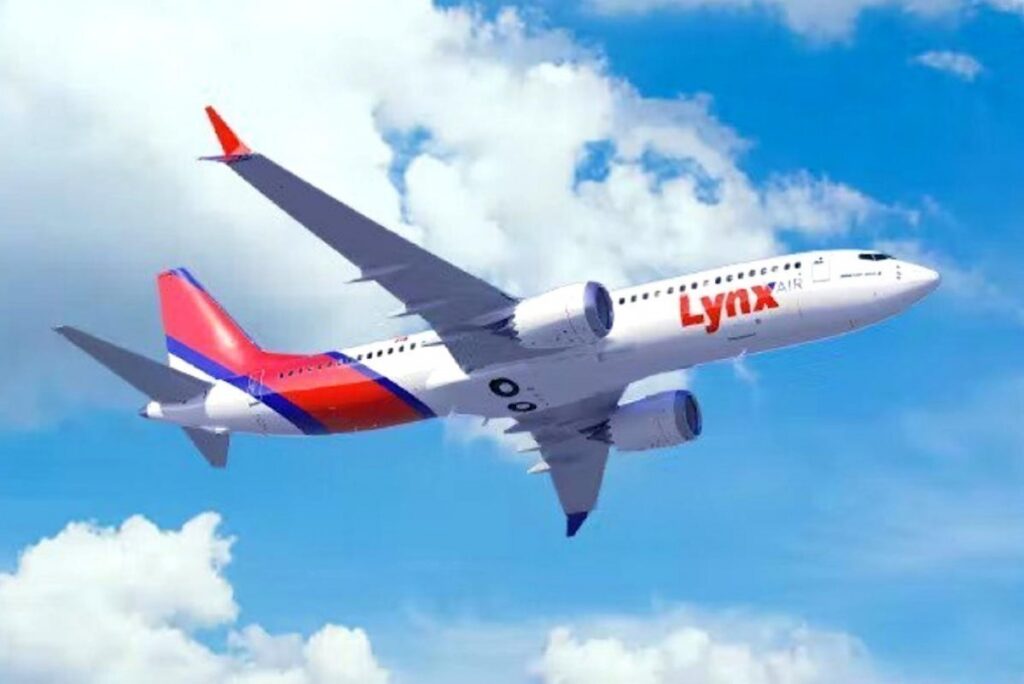Looking for life jackets, oxygen masks or food carts? Lynx Air is hosting a garage sale.
The now-defunct budget airline is reportedly selling assets in an attempt to recoup some of the losses it suffered before filing for creditor protection earlier this year.
According to The Canadian Press, Lynx Air, which ceased operations in February, appears to have had deals with overseas airlines to sell aircraft parts and equipment, from seats to tires to transponders.
The motion seeks Alberta's Court of King's Bench to approve contracts for New Hampshire repair company Aero3 to purchase more than 50 wheels and brakes, and for Cayman Islands-based leasing company BOC Aviation to purchase 79 other items, ranging from food carts to a trash can, CP reported.
Meanwhile, an affidavit from interim Chief Financial Officer Michael Woodward revealed that six leasing companies had repossessed aircraft operated by Lynx.
The Lynx was $186 million in debt.
Calgary-based Lynx describes itself as an “ultra-low-cost airline” and entered the market in April 2022 promising to improve customer service and expand its low-cost model in Canada.
Before the shutdown, the airline was operating nine Boeing 737 MAX 8s and had eight more on order, as well as 29 Boeing 737 MAX 8-200s, according to aviation analytics firm Cirium.
Financial pressures due to inflation, fuel costs, exchange rates, capital costs, regulatory costs and competitive tensions in the market were some of the challenges that led to the airline's collapse.
Lynx was $186 million in debt when it sought creditor protection in late February. The airline had at one point hoped to be acquired by rival Flair Airlines to ease its debt woes, but no such deal came to fruition.
Airlines are under pressure
Lynx is just one of several low-cost carriers facing financial pressures as Canada's airline industry undergoes consolidation and restructuring.
WestJet closed its low-cost subsidiary Swoop in October and also plans to integrate Sunwing Airlines (now part of the WestJet Group) into WestJet's core routes by April next year.
Flair, meanwhile, has faced financial difficulties over the past 18 months.
Last November, it was revealed that Flair Airlines owed the Canadian government $67.2 million in unpaid taxes related to import tariffs on 20 Boeing planes. (Flair Airlines CEO Stephen Jones said the airline has an agreement with the Canada Revenue Agency to pay the outstanding amount and that operations will not be affected.)
Meanwhile, CP reported that as of Feb. 22, the now-dissolved company owed $124.3 million to Indigo Partners, the U.S. private equity firm run by Bill Franke, who owns a quarter of the company.
The company also owes $47.8 million to various trade creditors and owes $25.6 million in unpaid taxes to the federal government, according to court documents.
The company also owed $4.1 million to Toronto and Montreal airports and $4.5 million to Delta Air Lines for aircraft maintenance and warehousing.
During its operation, Lynx flew to 23 destinations, including most major Canadian cities and U.S. cities, such as Phoenix, San Francisco, Orlando and Tampa Bay.
Subscribe to PAX today so you don't miss a single travel story. Click here to follow PAX on Facebook.



